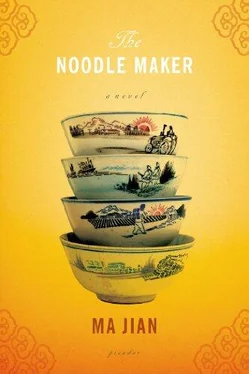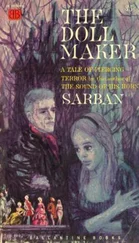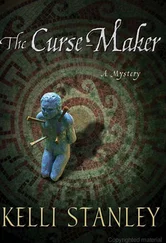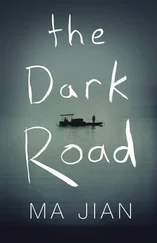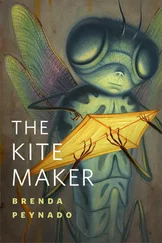(In the late dusk, the professional writer often sees the street writer stumbling across the intersection in the centre of town. It always strikes him that he has the eyes of an insecure youth, the balding head of a middle-aged man, the wrinkled brow of a sixty-year-old and the body of a child. He has no idea what’s going through his mind, but he longs to find out. Perhaps this is why he always keeps an eye out for him on the streets.)
‘The Absurd is more real than life itself,’ the street writer scribbled on the corner of his newspaper.
The letters he composed revealed nothing of his true character. In each one, he adopted a different voice. He could take on the role of a lawyer, a schoolgirl, a peasant, or a widow. He could be anyone, no matter what age or gender. If one had to fix an identity to him, one would have to say he was a composite of all the roles he assumed. Each letter was a new beginning for him, an opportunity to try out a new persona. Sometimes he felt as though he were skating on ice, in random overlapping circles. He knew where he had started from, but had no idea where he was going.
In the morning, he lodged complaints on behalf of plaintiffs, in the afternoon he wrote rebuttals for the defendants. He would write passionate professions of love, but would often have to pen the rejection notes that followed. He couldn’t help feeling sad for the people whose love he helped turn down. He lived his life through his letters. Late at night when all was quiet, the words he had written would chum inside him like grass in a cow’s stomach. Among the piles of paper on his desk was the draft of a letter he had written the week before, which started: ‘Dear Comrade Chi Hui, It’s time we put an end to our relationship (although it saddens me deeply) …’ The street writer remembered having to beg his client to allow him to add the phrase in brackets. He had written thirty-five love letters to Chi Hui for this client, and had experienced the anxiety of the first declaration of love, the steamy passion that ensued, opposition from the girl’s father and work unit, the attempted transfer of residency permits, a brief affair with a third party, a weepy reconciliation, and now the final break-up. He was tortured by the thought of the pain he had caused Chi Hui. He felt a sudden urge to betray his feckless young client, and disclose to Chi Hui all the young man’s hidden faults. What troubled him most was that the day after he wrote the final letter to Chi Hui, this fool asked him to write a letter to a new girl.
He turned the draft letter over, picked up his pen and wrote: ‘I can see your sad little face, your raven-black hair blowing in the wind. There are tears in your eyes. How could he have broken up with you so cruelly? Do you realise that I helped him write that letter to you? You should see his handwriting — it’s a disgrace! You have been in my thoughts all year. I have read every letter you sent back to him, my darling.’ (Even though he wrote love letters for a living, a blush always rose to his face when he used terms of affection like this.)
Turning the page over again, he read: ‘You mean nothing to me now. You only chose to go out with me because Yuci had dumped you. I just filled the gap. Yuci showed me the letters you wrote him. They were much more loving than the ones you sent me.’ Then, in his own note to Chi Hui he wrote: ‘I wrote that letter myself, word for word. Chi Hui, I can’t bear to think of you reading it. I’m terrified that you might get hold of some sleeping pills. If only I could fly to you twice as fast as that damn letter to stop it contaminating your hands.’
Flicking to the other side again, he read: ‘You depress me. And so does your dull family. I feel like a corpse when I’m with you. Your graceful exterior cannot hide the ugly scars left by your terrorised childhood.’
‘I love your charming gestures, Chi Hui,’ he continued on the other side (even though he had never seen this girl who lived a thousand kilometres away). ‘I love your family, I love your frailty. Your background and character happen to match mine exactly.’ He paused for a moment, overcome by a momentary sense of pride, then continued: ‘Of all the young ladies I’ve seen …’ (his clients sometimes showed him photographs of their loved ones) ‘you are the most beautiful. You have the melancholy air that is characteristic of our classical “fragile beauties”. We are both thin and weak. We should spend our lives together in sickness, tending to one another’s needs. When I look at you, I see the first snow of winter falling on my home town, the frosted windows of a wooden cabin, a cup of steaming milk tea. Oh, I can’t forgive myself for writing those cruel letters to you!’ On the other side, he had berated her gourd-shaped face and lifeless expression. ‘I have corresponded with you for a whole year. How can I just abandon you now in such a heartless way? I must be mad!’
He turned the sheet back and forth. He knew both sides of it were real, and that he was trapped in between. He was aware that he’d made some progress, though. Ten years ago, he was a feeble young man who was prone to tears and could only digest minute quantities of food. Now, however, he was a mature man of thirty with a range of complex emotions. As a boy, he only liked to watch sad films. When he saw the heroine die in the Korean film The Flower Girl , he cried in front of his classmates. He was always drawn to people with scars on their bodies, because he knew that each scar represented a moment of pain.
He continued his note to Chi Hui: ‘I longed to have a scar as a child, but I was sixteen before I finally succeeded in cutting myself. My inertia and lethargy have prevented me from achieving anything of great importance in life. Perhaps my poor digestion and weak heart are to blame. I chose to become a street writer because I thought it would cure me of my loneliness, but now I find myself vexed by a multitude of worries. These anxieties are bad for my health. Whether I see parents saying goodbye to their children at a train station, or a group of friends chatting and laughing, I always feel a wave of nausea.’
After a brief hesitation, he went on: ‘I often feel I’m so light that I could drift into the sky. To prevent this happening, I keep lumps of metal in my pockets to weigh me down. Sometimes, my feet seem to leave the ground. I’m so small and thin, I wonder why the wind hasn’t carried me away yet.’ He stopped again, sensing that he was now just writing to himself. He knew that in the end, he always managed to disappear from the page. He could be whatever people needed him to be, but he was never able to enter their lives.
As the street writer sits under the lamplight, we can examine his haggard face and slowly vanishing body. (In his notes, the professional writer often remarks on the street writer’s smile and premature wrinkles. Anyone who has grown up in a fishing village will immediately picture the street writer as a shrimp that has just been scooped from the sea.) His frail and sickly appearance allowed him to melt into the background, but it didn’t stop his business from flourishing. His skills were in great demand. Illiterate migrants who settled in the town’s new district were grateful for his service, as it enabled them to pass themselves off as locals. Young people who had left school early also relied on him to fill the gaps in their education. They milled around him all day. He would smile knowingly as they passed on to him all the latest gossip about their neighbours. He received information faster than the speed of a telegram, and was the first person people turned to if they wanted to know what had happened that day.
‘Have you seen that cat again?’ people asked as they passed him on the street corner. His knowledge concerning the notorious ‘foreign cat incident’ had made him famous throughout the town. A foreign cat the size of a dog had escaped from a chemical plant run by a Sino-Western joint venture. The plant’s delivery driver, Old Sun, was one of the first to hear about the escape. Since he knew that the cat often scurried past the street writer, Old Sun asked him if he’d seen it recently. The street writer then divulged all the information he had picked up about the case. He told him that because the foreign cat had one blue eye and one red eye, and could say ‘Good-bye’, Good morning’, ‘Long live Chairman Mao’ and ‘Pig’ in English, it was arrested, interrogated, and detained on charges of foreign espionage. The police discovered a bugging device and telegraph transmitter fixed to its tail, and behind its eye a miniature camera that had been secretly photographing the dark side of China’s socialist system. The curious thing, though, was that during its interrogation by two officials from the National Security Department, it cried out ‘Long live Chairman Mao.’ The reactionary spy was clearly trying to pull the wool over their eyes. The night they were preparing to escort the cat to Beijing, it bit through its chains and escaped. The street writer said he had seen it several times, scampering past him then disappearing over the high wall across the road. It was a year later before the police officers finally tracked the cat down and beat it to death with wooden sticks.
Читать дальше
